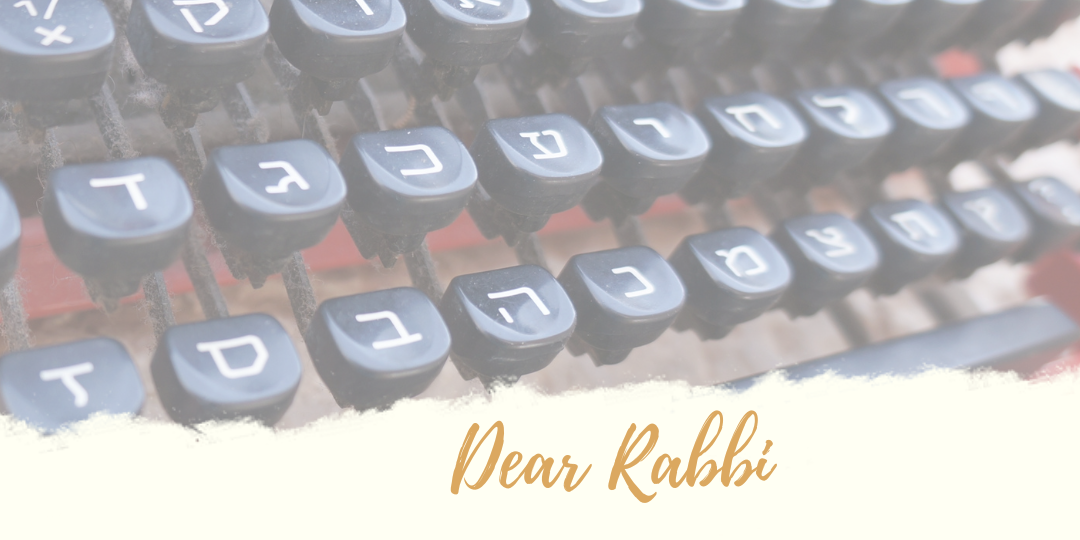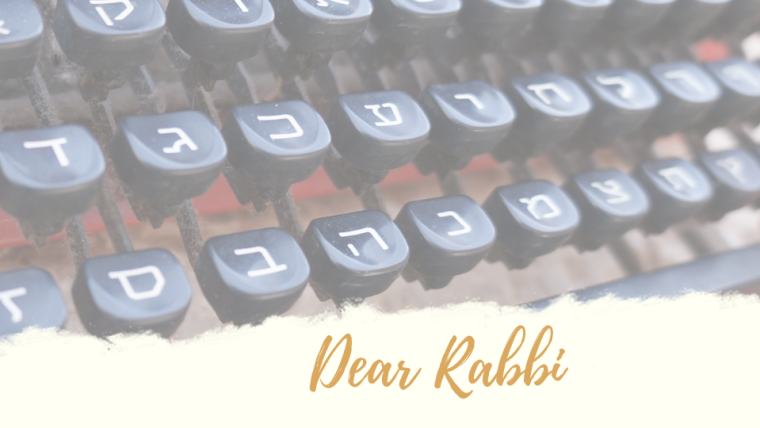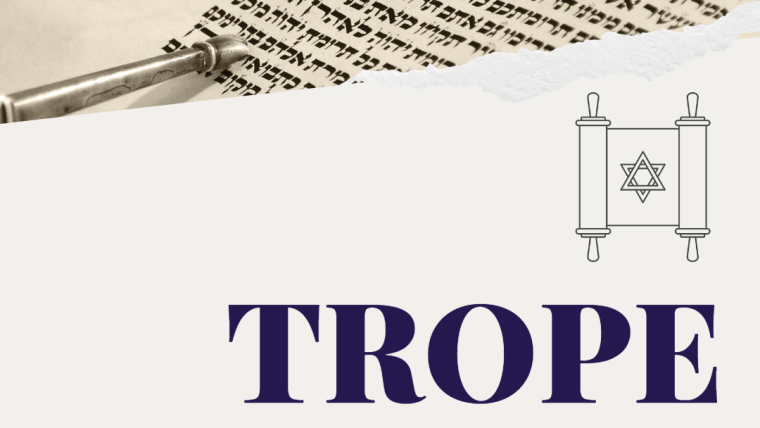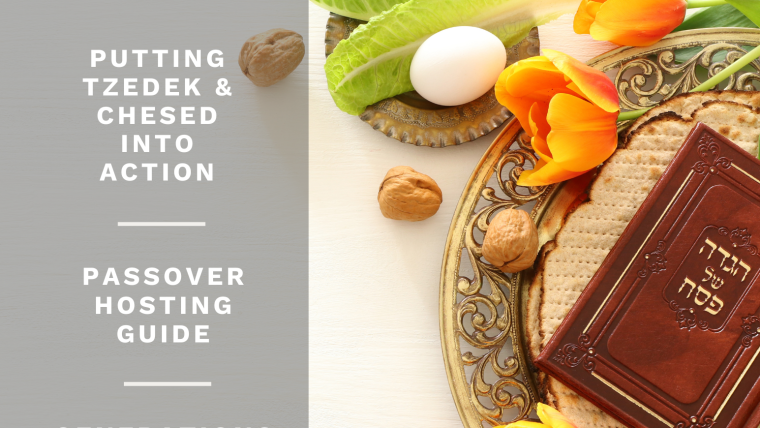Do you have a question for the rabbi? Write to Rabbi Ferro at rabbi@nhs-cba.org with the subject “Dear Rabbi…”
Dear Rabbi,
I thought I understood what all the Jewish holidays were supposed to be about, but I’m confused about Tish’ah b’Av.
With most holidays, there’s something I can find in our prayers or readings that makes me feel uplifted. But with Tish’ah b’Av, it’s all doom and gloom!
I have a hard time mourning for a Temple I don’t really feel a connection to, especially now that Jerusalem is rebuilt and there’s a State of Israel. Is that really all there is to it? We’re sad and we fast because the Temple was destroyed a long time ago? Or is there something else I’m missing here?
-Tripped Up by Tishobov
Dear Tripped Up,
Tish’ah b’Av (AKA Tishobov, the Fast of Av, the Ninth of Av) is an unusual holiday on the Jewish calendar. As you rightly identify, it is a fast day connected to the destruction of the First and Second Temples in Jerusalem. According to tradition, these were destroyed in 587 or 586 BCE and in 70 CE, respectively, both on the very same day: the ninth day of the summer month of Av. (This year, 9 Av begins on the evening of July 17, after Shabbat.)
Tradition associates other low points in the story of the Jewish people with this date, including the decree of the Israelites’ punishment to wander in the wilderness (Numbers 14:22-23). And a number of major moments from the Holocaust and medieval anti-Jewish persecutions can be reliably dated to 9 Av or near it.
So in that sense — yes, there’s more to this occasion than just remembering the Temple or the destruction wrought on Jerusalem at two particular points in history.
But even with a thriving modern Jerusalem a mere plane-ride away, we shouldn’t ignore the significance of the destruction of the Temple — even those of us who don’t look forward to seeing ritual sacrifice return to prominence some day.
Archaeology and a careful study of our biblical sources point us to the likely possibility that the Temple in Jerusalem was only one part of how the Israelites observed their religion in earliest times. But the Temple eventually became essential to an important ritual process of atonement — you made mistakes, you brought offerings to the Temple, and the Priests offered them up on your behalf to cleanse you of guilt.
With the destruction of the First Temple, people had to forgo this ritual of atonement for less than a century. With the destruction of the Second, they had to forgo it for millennia, and possibly forever.
When the First Temple fell, we came to understand that God dwelled not only in the Temple’s sacred precincts in Jerusalem, but in any place in which the Jewish people found itself. When the Second fell, we came to understand that ritual sacrifice (and perhaps even ritual itself) lacked the power to assure that God would have a good “working relationship” with the Jewish people (and more broadly, with all of humanity).
We read the following in an important rabbinic work called Avot de-Rabbi Natan:
“Once, Rabban Yoḥanan ben Zakkai left Jerusalem, and Rabbi Yehoshua followed after him and saw the Holy Temple destroyed. Rabbi Yehoshua said: ‘Woe to us, for it is destroyed — the place where Israel’s sins are forgiven!’
[Rabbi Yoḥanan] said to him: ‘My son, do not be distressed, for we have one form of atonement that is just like it. And what is it? Acts of loving-kindness, as it says, For I desire loving-kindness, and not sacrifice (Psalms 89:3). And so we find that Daniel, that proper man, would busy himself with acts of loving-kindness. And what were these acts of loving-kindness that he was so busy with? … He would help a bride and bring her happiness, he would escort the dead [in a funeral procession], and he would always give a perutah [a small coin] to a poor person. And he would pray three times a day, and his prayers would be gladly accepted’ (Avot de-Rabbi Natan 4:5).
In this passage, Rabban Yoḥanan ben Zakkai suggests that perhaps sacrifice isn’t the point, and never was the point. Some of the Prophets in the Hebrew Bible make some similar statements. And in the Middle Ages, too, the great rabbi and scholar Maimonides suggested that ritual sacrifice was something God was once willing to accept as a concession to human beings’ own primitive nature, rather than something God truly desired.
I therefore believe that there’s a blessed and glorious “a-ha moment” buried in our mournful Tish’ah b’Av observance: the realization that the Temple and its rituals belong not so much to a divine plan as to a human one. The divine objective — encouraging us to pursue relationships with God, nature, and one another that are meaningful, deep, and moral — can be better served today by means other than ritual sacrifice.
So if that’s the case, why mourn on Tish’ah b’Av?
First, we know that tragic historical moments like those commemorated on Tish’ah b’Av caused physical harm to individual people that has had real and lasting effects on the Jewish people as a whole. Real people died, painfully and horrifically, in these acts of war and destruction. Imagine: maybe you could be lucky enough to survive the destruction itself, but at the cost of losing the people and things that made your home a home; to say nothing of the sight of seeing your own neighborhood in flames, or the knowledge that your enemies have triumphed over you so completely.
Now add to this the pain of thinking that God, too, is somehow in league with those enemies — or that God used to care what happened to you but no longer does. Perhaps you called out in prayer or offered countless sacrifices as you believed you should — but nothing worked.
In discovering that God doesn’t only care about Jerusalem, or that ritual behavior isn’t the only way to garner God’s attention, we may have gained useful and important insights into the nature of the Divine. At the same time, we discovered that God doesn’t always act the way we might expect on Jerusalem’s behalf, and that God doesn’t always respond to our rituals reliably and consistently.
Much like Adam and Eve in Gan Eden, we found our eyes opened by the loss of our Temple. Though we may have come out the wiser for it, we also lost a great deal of our innocence in a painful way. This experience is a trauma in Jewish history that still resonates today and still threatens individual Jews’ spiritual health and equilibrium.
This fact alone would justify the somber observances of Tish’ah b’Av.





